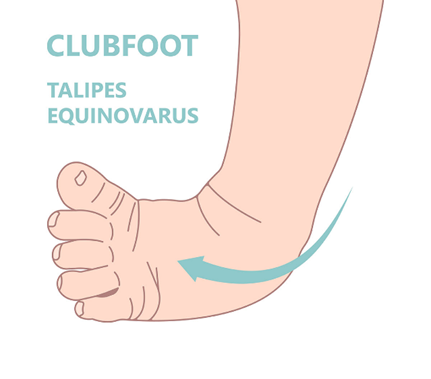Edited Text
What is the most concerning statement by a child with a newly placed long leg cast after repair of the tibia?
“Watch how well I blow these bubbles.”
“My skin is so itchy under there.”
“My toes feel like they are sleeping and won’t wiggle when I tell them to.”
“I was able to ride on the scooter with the PT person’s help.”
The Correct Answer is C
The correct answer is c. “My toes feel like they are sleeping and won’t wiggle when I tell them to.”
Choice A reason:
“Watch how well I blow these bubbles” is not a concerning statement. It indicates that the child is engaging in normal activities and is not experiencing any distress related to the cast or the injury.
Choice B Reason:
“My skin is so itchy under there” is a common complaint among children with casts. Itchiness can be managed with appropriate care, such as using a hair dryer on a cool setting to blow air under the cast. However, it is not an immediate cause for concern.
Choice C Reason:
“My toes feel like they are sleeping and won’t wiggle when I tell them to” is a concerning statement. This could indicate nerve compression or impaired circulation, which are serious complications that require immediate medical attention. Prompt evaluation is necessary to prevent permanent damage.
Choice D Reason:
“I was able to ride on the scooter with the PT person’s help” is not a concerning statement. It suggests that the child is participating in physical therapy and is able to move with assistance, which is a positive sign of recovery.
Nursing Test Bank
Naxlex Comprehensive Predictor Exams
Related Questions
Correct Answer is D
Explanation
The correct answer is d. Frequent serial casting is tried first
Choice A reason:
Infants do not outgrow clubfoot on their own. Without treatment, the condition can lead to significant disability and difficulty walking. Early intervention is crucial to correct the deformity and ensure proper foot function.
Choice B Reason:
Surgical intervention is not the first line of treatment for mild cases of clubfoot. Surgery is typically reserved for severe cases or when nonsurgical methods, such as casting, have failed. The goal is to correct the foot’s position using less invasive methods whenever possible.
Choice C Reason:
Traction with foot manipulation is not a standard treatment for clubfoot. The primary nonsurgical treatment involves the Ponseti method, which includes gentle manipulation and serial casting to gradually correct the foot’s position.
Choice D Reason:
Frequent serial casting, known as the Ponseti method, is the first line of treatment for clubfoot. This method involves weekly manipulation and casting of the foot to gradually move it into the correct position. It is highly effective and is the preferred initial treatment for most cases of clubfoot.

Correct Answer is B
Explanation
Choice A reason:
Compartment syndrome is a condition where increased pressure within a muscle compartment leads to decreased blood flow, which can cause muscle and nerve damage. It is typically associated with severe trauma, fractures, or crush injuries. The symptoms include severe pain, swelling, and decreased sensation or movement in the affected limb. In this case, the child’s symptoms of redness, swelling, and tenderness following a spider bite, along with an elevated WBC, are more indicative of an infection rather than compartment syndrome.
Choice B Reason:
Osteomyelitis is an infection of the bone, which can occur following an injury or infection elsewhere in the body. The symptoms include redness, swelling, tenderness, and pain in the affected area, along with fever and elevated WBC. Given the child’s history of a spider bite and the presence of redness, swelling, tenderness, and elevated WBC, osteomyelitis is the most likely diagnosis. The unremarkable X-ray does not rule out osteomyelitis, as early stages of the infection may not show changes on X-ray.
Choice C Reason:
Osteogenesis imperfecta, also known as brittle bone disease, is a genetic disorder characterized by fragile bones that break easily. It is not associated with infections or elevated WBC. The symptoms of osteogenesis imperfecta include frequent fractures, blue sclerae, and hearing loss. The child’s symptoms of redness, swelling, and tenderness following a spider bite, along with an elevated WBC, are not consistent with osteogenesis imperfecta.
Choice D Reason:
Juvenile idiopathic arthritis (JIA) is a type of arthritis that occurs in children. It is characterized by persistent joint inflammation, pain, and swelling. While JIA can cause joint tenderness and swelling, it is not typically associated with a recent injury or infection, such as a spider bite. Additionally, JIA does not usually cause elevated WBC. The child’s symptoms are more indicative of an infection, making osteomyelitis the more likely diagnosis.
Whether you are a student looking to ace your exams or a practicing nurse seeking to enhance your expertise , our nursing education contents will empower you with the confidence and competence to make a difference in the lives of patients and become a respected leader in the healthcare field.
Visit Naxlex, invest in your future and unlock endless possibilities with our unparalleled nursing education contents today
Report Wrong Answer on the Current Question
Do you disagree with the answer? If yes, what is your expected answer? Explain.
Kindly be descriptive with the issue you are facing.
